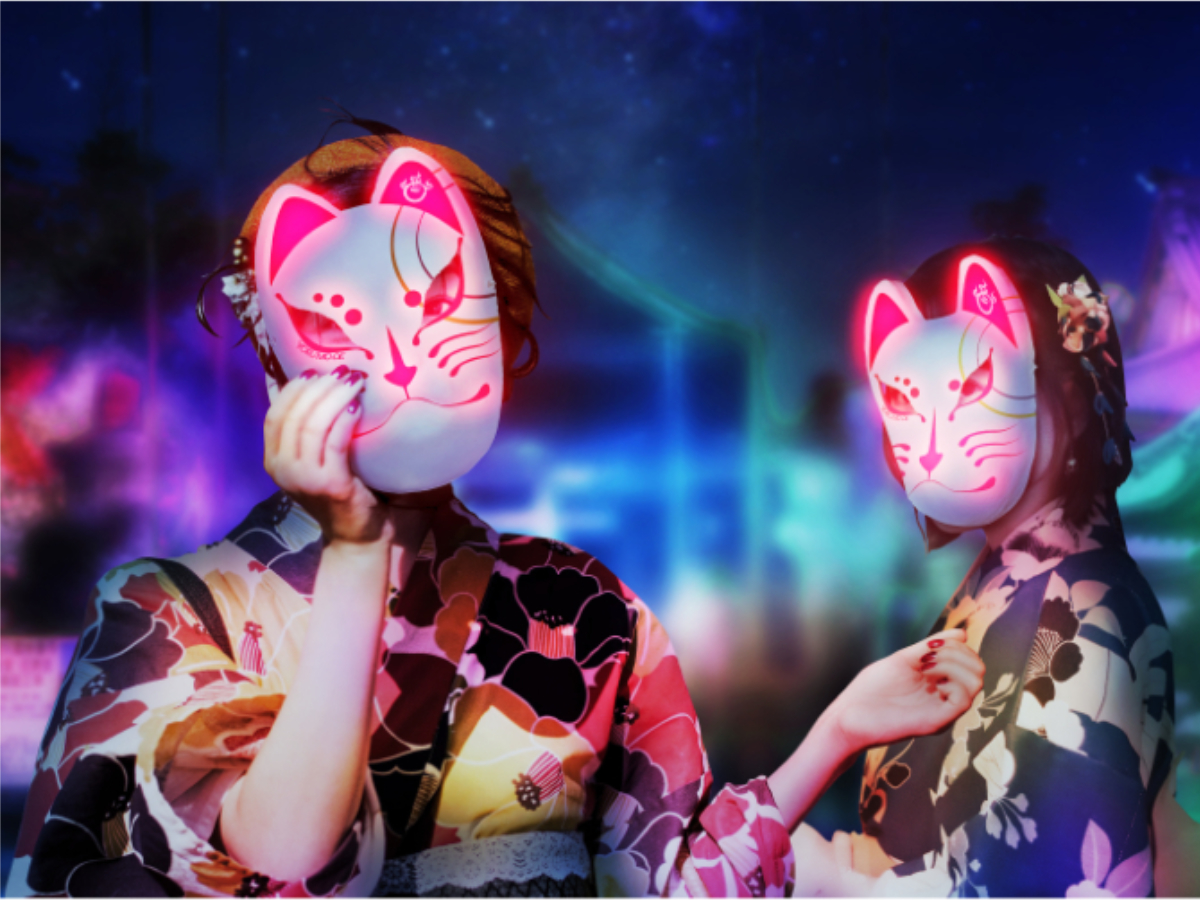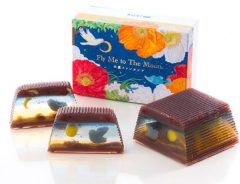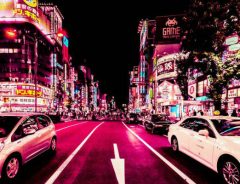
Source: PR Times
NAKED co-creates ‘new normal’ pandemic adapted night-worship with Toyokawa Inari, with protective fox masks and distance lanterns
- Tags:
- coronavirus / Japan / Lanterns / Masks / Temples
Related Article
-

The Death Note Version Of PPAP Is So Creepy, But Makes So Much Sense
-

Japanese Artist’s Tricky 3D Anime Character Illustrations Are Too Good To Believe
-

Instantly Make A Hot Bowl Of Miso Soup With These Miso Soup Balls
-

Kind-hearted shiba inu in Japan makes sure his human gets a failed-to-deliver notice
-

Gorgeous Traditional Japanese Snack Reveals Different Scene With Each Serving
-

Nighttime Tokyo Photography Colors Modern Metropolis In Pink


Shrines and temples have long been a symbolic place to connect with one another, but sadly the number of worshippers across Japan has decreased by 1.26 million people this year due to the influence of COVID-19.
Toyokawa Inari, is a Buddhist temple (despite the name, it is in fact not a shrine), based in Aichi prefecture that is celebrating it’s 580th anniversary this year. Instead of letting the year pass by without celebration, the temple has requested the help of creative company, NAKED, INC. Together the two have come up with an innovative way for people to enjoy ‘night-worship’ through light displays that encourage social distancing and anti-virus actions.
The collaboration, named ‘Toyokawa Inari x Naked YORU MO-DE’ is set to begin from 22 July 2021. Toyokawa Inari is hoping that the event will become a new normal even in a post-COVID world.
The collaboration features several interactive light displays that the two organisations describe as being ‘planned corona countermeasure art’, such as the ‘NAKED Tsukubai’ hand sanitizer, the ‘NAKED Distance Lantern ®’ and the ‘FOX MASK’.
NAKED Tsukubai
The NAKED Tsukubai is both a hand sterilization spot and a projection mapping light display. This time, the projection map features roses, which are a speciality that Toyokawa is known for. The alcohol sterilization spreads in the palm of the hand like a bunch of blooming flowers.
NAKED Distance Lantern
Available in two designs, the NAKED Distance Lantern encourages social distancing by projecting a circular light and shadow resembling a rose or a fox onto the ground around the lantern bearer.
The circular projection helps to keep visitors aware of their distance.
FOX MASK
This unique kitsune mask is made in collaboration with the handmade fox speciality store ‘Ichinen Kitsune’ from Toyokawa city. The mask lights up in the dark using phosphorescence, so it is a great addition for viewing the temple at night. Additionally, the fox mask provides a shield against airborne water droplets.
With all of these unique ways to stay safe at Toyokawa Inari, you can enjoy the ‘YORU MO DE’ event, which includes a special ‘light-up of the temple approach’, an illumination made entirely out of lanterns and a spin on the classic temple omikuji (fortune reading) with ‘NAKED Hanamikuji’
If you are wondering why Toyokawa Inari is a Buddhist temple, even though it’s name, the imagery featuring foxes and the torii gate at the entrance hints otherwise, there is an interesting story that explains. Though known popularly as Toyokawa Inari, the official name of the temple is actually Enpukuzan Toyokawa-kaku, Myōgon-ji (円福山 豊川閣 妙厳寺).
Up until the Meiji period, Japan’s organised religion was known as ‘Shinbutsu-shugu’ which was in fact a mixture of Shintoism and Buddhism. When Buddhism reached Japan in the 6th century the Japanese tried to make sense of the religion by intertwining it with their older Shinto beliefs. As a result many temples and shrines were located on the same grounds, and worshipped in unity. Even today you can still see examples of this religious jumble that once existed across Japan.
It is this blend of religions that led to the strong presence of Shintoism at Toyokawa Inari. Through the teachings of the temple, the Buddhist entity Juichimen Kannon was identified as a manifestation of the Toyokawa Dakinishinten, who, in Japanese Buddhist beliefs, is depicted as riding on the back of a white fox. During the time of Shinbutsu-shugo this image was associated with the Shinto kami of food, agriculture and rice, Ukanomitama. This connection between the Buddhist Toyokawa Dakinishinten and the Shinto Ukanomitama is what led to the strong presence of Shinto imagery at the temple.
Though the temple still houses these Shinto artifacts today, Toyokawa Inari is a Buddhist temple of the Sōtō sect, and no longer has a religious connection with Shintoism.
Toyokawa Inari x NAKED YORU MO DE
Venue: Toyokawa Inari (a.k.a Enpukuzan Toyokawa-kaku, Myōgon-ji) 1 Toyokawa-cho, Toyokawa-shi, Aichi 442-8538
Dates: 22 July 2021 – 31 July 2021
*after July 31st, the event will be held on the 22nd of every month indefinitely
Hours: 18: 00-23: 00 (Last admission 22:00)
Prices
Advanced Reservation:
Adults (high school students and above) 800 yen
Children (junior high school students and below) 500 yen
Same-day Reservation:
*Preschoolers go free. *Please note tickets are not sold at Toyokawa Inari, and must instead be purchased via the official website or through Ticket Pia.Adults (high school students and above) 1000 yen
Children (junior high school students and below) 600 yen